Christmas greetings and foresight from the school management
A year of change and success

With the past year in the rear-view mirror, EECS Management Group reflect on highlights, challenges and exciting prospects. From all-time high of external funding and the move to the KTH Campus to Christmas gift wishes and what changes have to do with cross-country skiing, Ann, Markus, Lina, Henrik, and Joakim share their thoughts on 2024 and the new year here.
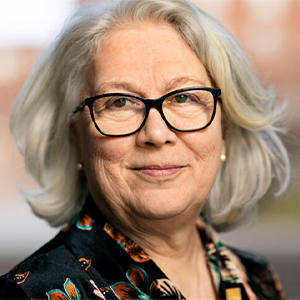
What are you most proud of the School's achievements over the past year?
I'm so proud of our faculty, which carries out its tasks despite many major change projects. Teaching is going well; we have launched a new Master's programme, and external funding has reached new heights this year. We have established a management team for the School and can finally take significant steps forward.
What are you most looking forward to next year?
‘Next year, we'll be developing our organisation together, bringing together responsibility for undergraduate education, research and doctoral education and external funding. We will gather on the KTH Campus and be much closer to each other.
If the School were a gingerbread house, what would be the ‘icing’ that holds everything together?
We generate and disseminate new knowledge through our students, PhD students and partners in the research community and industry. It isn't easy to visualise, but perhaps a beautiful spider's web is moving in the wind, most visible in a streak of light from the sun.
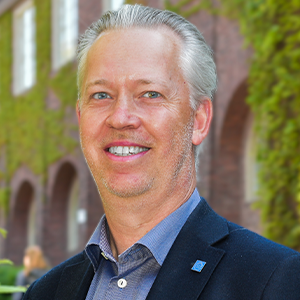
Which initiative in education do you think has made the most significant difference for students this year?
Instead of mentioning a single initiative, I would like to highlight EECS's development projects within the Future Education. During the year, we have launched projects in several different areas, all making or will make a difference for our students. We have projects that focus on systematic work with study coaches within programmes, pedagogical methods to develop students' abilities to deal with intractable problems, and creating interactive learning materials using generative AI. These are exciting new educational initiatives that will make a difference for students.
Is there any new initiative or project you think will make a big difference next year?
Starting in January in the spring semester of 2025, we will gradually move education from Campus Kista to Campus Valhallavägen. This means that
many of our students will split their time between these campuses in the spring, and in the autumn, all programmes will have their reception for new students inside the Valhallavägen campus. I believe the campus move will make the most difference for many of our students - both those who move from Kista and those who already have their studies in Valhallavägen. We have placed great emphasis on trying to implement the relocation of programmes as smoothly as possible for students and teachers and, of course, hope that it will be a positive change for all of us.
If you describe the school's education as a Christmas table, which dish would symbolise the school's strength?
That's a funny analogy - a good Christmas table has many dishes that strengthen it! I would see our entire educational offer in terms of courses at this Christmas table and say that the strength lies in the school's impressive breadth and depth of training in EECS subject areas. A significant advantage of this offering is that our programme students have fantastic opportunities to use the elective space to get acquainted with subject areas within EECS, which might be a bit on the fringe of their programme focus. This is a real strength of the EECS Education Christmas Table.
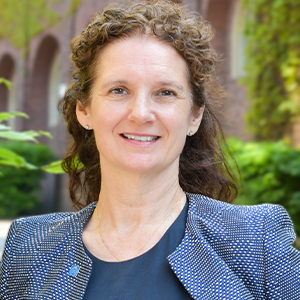
Looking back over the years, what impact from school research sticks in your mind?
The year 2024 will go down in history as AI was on everyone's lips. When ChatGPT first hit the scene, the focus was very much on how to develop around education and this year, we're leaping to research. One breakthrough was this year's Nobel Prize in Physics, which rewarded research that provides the basis for today's AI applications. At EECS, there are several research areas where AI is applied and developed. KTH leads the research initiative WASP and Digital Futures with industrial partners. At this year's Research & Impact Day, two heavyweight representatives in the field, Bo Wahlberg and Danica Kragic, participated, both of whom have leading roles in WASP and AI.
During the year, we have celebrated several successes in research and research activities at EECS. We have a new Director of the Electrum Laboratory and a new Chair of the PDC. In general, the research conducted at the school has been impressively successful, and we have seen a great interest in studying and visiting KTH, which is a good mark.
What are your big hopes for the societal impact of research next year?
The year 2025 will be when we bring our departments closer together on the KTH campus, and I would like to see this as a way to strengthen our research strategically and our internal collaboration. I look forward to continuing to visit the school's departments to see how we can utilise strong research infrastructures even better.
If you could give one research idea to the world as a Christmas present, what would it be?
The world is becoming increasingly complex, so we often need multiple research areas to solve societal challenges. Collaboration and dialogue are prerequisites for research, and we need to bring people together in person while developing even better digital models and applications. Thus, we need to contribute to sustainable solutions for transport and make valuable and energy-efficient solutions for applications and underlying algorithms. Here, I see that the research at the EECS school contributes to several research areas, and I know that we can take the lead in several strategic regions at KTH, Sweden, Europe, and the world. Of course, in collaboration with our networks within and outside KTH country, Europe and the world.
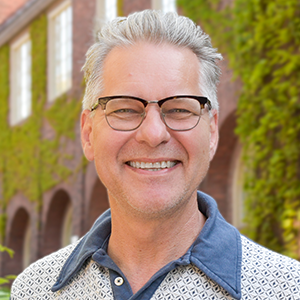
What has been the most rewarding part of faculty development this year?
Listening to all the enthusiastic candidates who applied for assistant professorships. It's also great that we've hired more women. It's also exciting to see how we will organise the Appointments Committee and work with the Faculty Board. Right now, it feels messy, but it will be good.
How do you see the following steps to strengthen our faculty?
I have high hopes for the career review, which is very good. I also hope that forms will be created for more direct faculty funding. Our faculty is strong, and this is reflected in many promotions.
What would it be if you were to give everyone in the faculty a magical quality for Christmas?
I don't believe much in magical qualities, but a Gustaf Dalén Optimist Pin – with the text BE AN OPTIMIST – should be given to everyone. It would be best to remind yourself that your attitude and actions make things better. It's not always easy, but it's always rewarding.
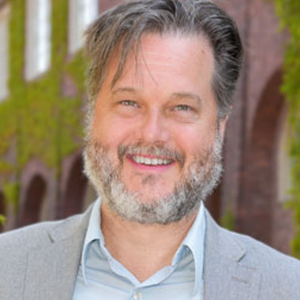
What are the best changes you are taking away from the year?
I see a clear shift in how we work with data, although we still have some way to go. We are starting to develop visualisations that allow us to identify variations, analyse trends and create forecasts. An example is the work we have done in initial education this year. With these tools, we can have more forward-looking discussions about the direction we are heading in and determine whether an issue requires action or whether it is a natural variation. With good data, we can avoid looking backwards - like driving a car by only looking in the rear-view mirror.
How do you intend to inspire and support the developments that lie ahead next year?
Communicating, setting a vision of what we want, being present, and listening. Let's focus on our strengths and opportunities. Then, most of my job is about setting frameworks and removing barriers.
If you describe change management as a winter activity, what would it be and why?
Change management is like cross-country skiing - it requires planning, perseverance and adapting to the terrain. Sometimes, you have a perfect glide, and everything flows smoothly; sometimes, you meet resistance and must fight your way through. It's about keeping a sustainable pace, getting everyone to the finish line, and not losing anyone on the mountain.
